Featured
Abia Government, UNDP, EU Moves To Improve Health, Safety In The Workplace
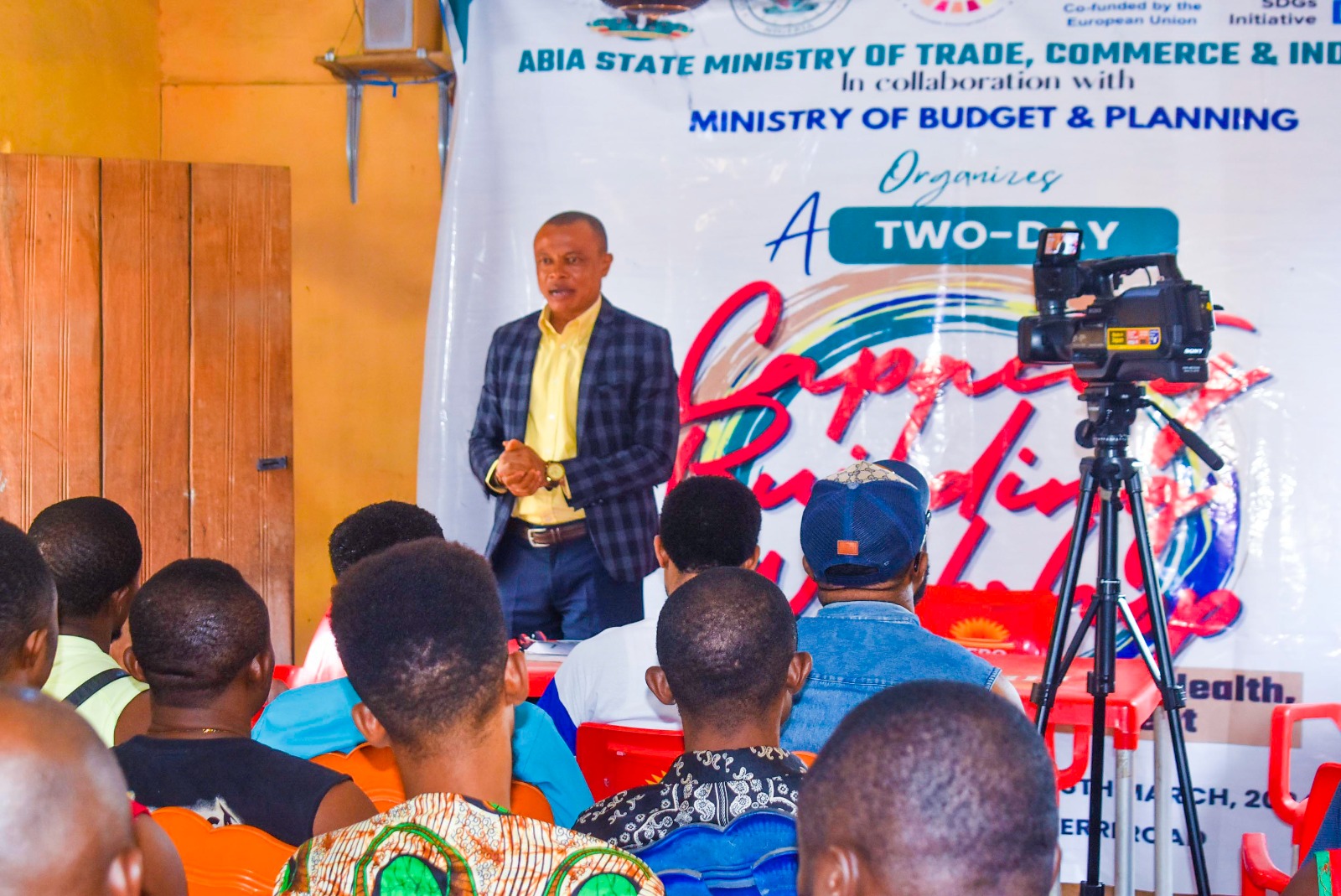
In her pursuit of elevating occupational health and safety, the sponsors, led by the United Nations Development Programme, European Union, INFF and the Office of Sustainable Development Programme in collaboration with the Abia State Government, organizes a two-day capacity-building workshop for shoemakers in Aba, on Health, Safety and Environment at Aba North shoe plaza on 4th through 5th march 2024.
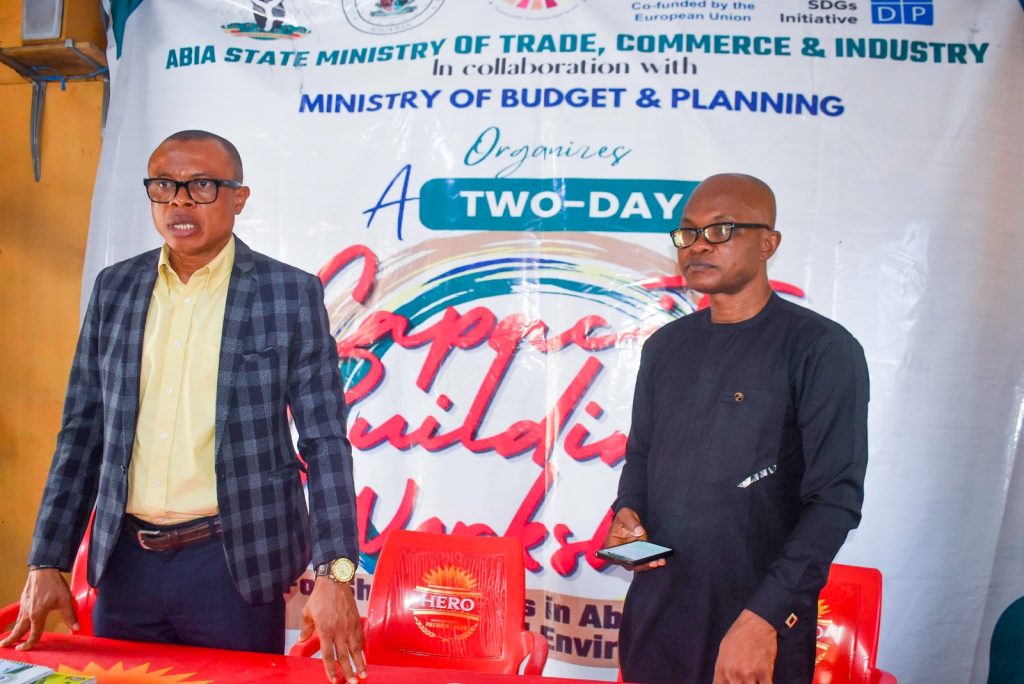
The UNDP representative, Mrs. Grace Chioma, reviewed and introduced its blueprint which aims at restrategizing businesses, facilitating invaluable knowledge opportunities, formidable partnerships with government entities, and ensuring that businesses especially in Aba, gain local membership and recognition from the parent body.
“In representing diverse business sectors, this collaboration aimed to embed principles at the core of businesses in Abia state as well as, nurturing a culture of safety and responsibility”.
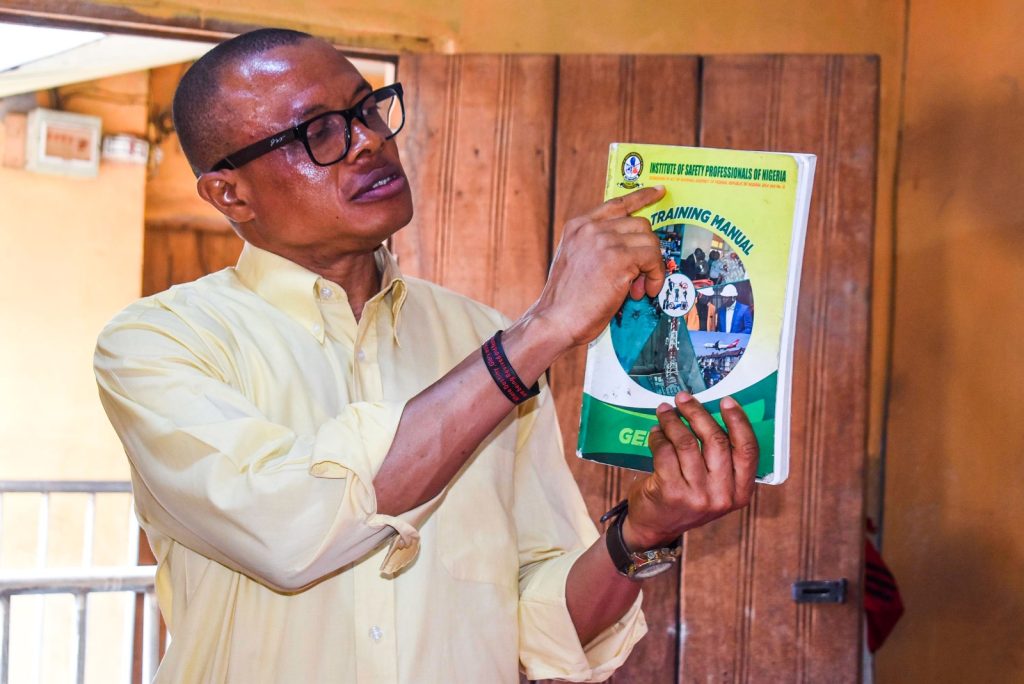
Besides, Mrs Grace also pointed out that a culture of safety is cultivated through consistent education, awareness campaigns, and leading by example.
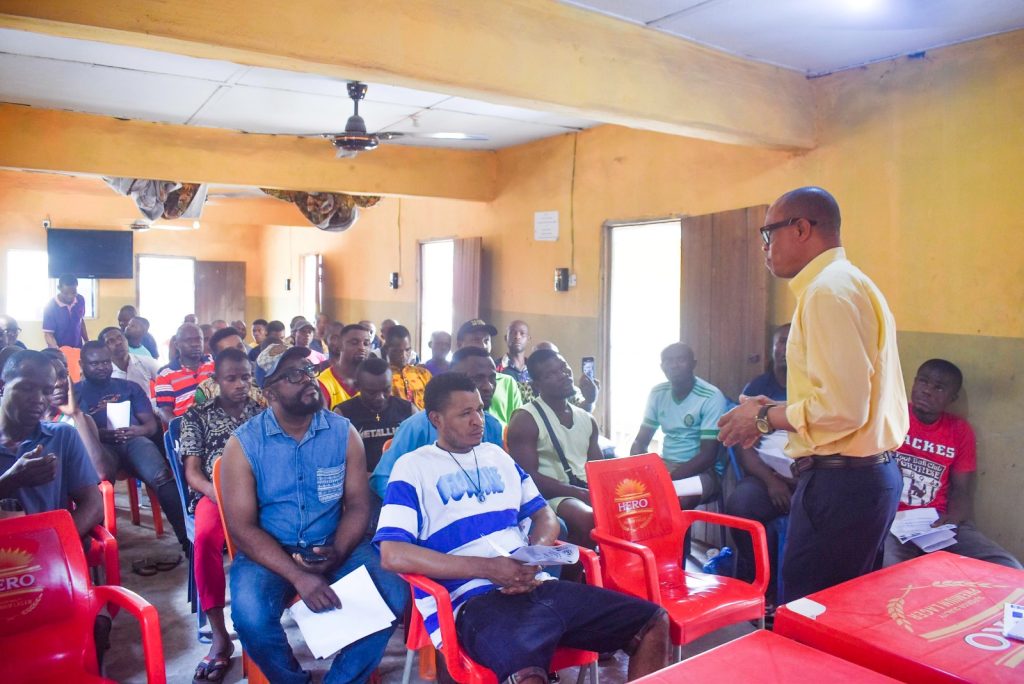
“These include educational institutions, workplaces, public spaces, and even within home, collaboration between the government and private sector entities is crucial for holistic safety improvement”.
“Health and safety professionals can serve as liaisons in facilitating dialogue and cooperative efforts between public and private stakeholders”, she notes.
As both employers and employees become increasingly sensitive to workplace wellness and how it can impact productivity, the convener of the workshop Dr. Charles Ukauwa, challenged Aba shoemakers on the need to ensure occupational health and safety gains prominence even beyond work circles.
Mr. John Enyinnaya Thompson, the lead trainer essentially highlighted the whole gamut of wellness including the physical and mental wellness of people at work, as well as matters such as stress reduction, human resource development, and even rehabilitation.
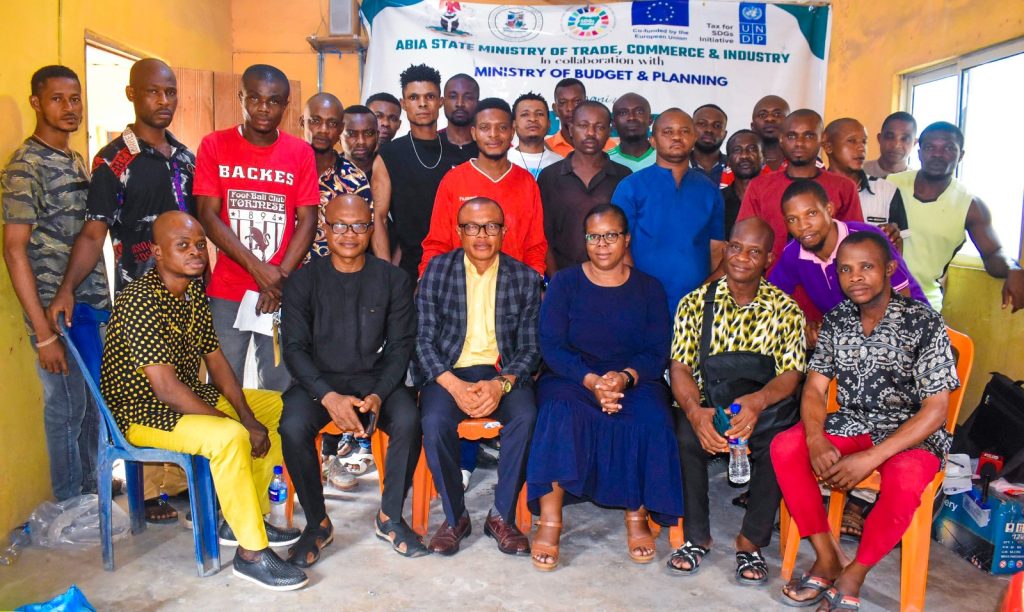
“it has become so critical that, occupational health and safety of workers has been a major concern of global organizations, who decide to amend paragraph 2 of the ILO Declaration on fundamental principles and Rights at work to include a safe and healthy working environment”. as a fundamental principle and right at work.
In fact, to underline the seriousness of the subject matter, the federal government of Nigeria in 1994, ratified the ILO’s convention No.155 on OHS. Besides, that is the employee’s compensation Act, 2010.
The Employees Compensation Act, 2010. aforementioned, therefore shows that elevating safety standards in Nigeria has become a critical national imperative.
Indeed, it can be argued that the nation’s growth and development hinge not only on economic progress but also on the well-being and security of its citizens.
The body also encourages member states to scale up the coverage with essential interventions for the prevention and control of occupational and work-related diseases and injuries and occupational health services in collaboration with other relevant national health programmes. This includes those dealing with communicable and non-communicable diseases, prevention of injuries, health promotion, mental health, environmental health, and health systems development.
“In addition, health and safety professionals, in collaboration with government, can spearhead initiatives to promote safety consciousness at all levels of society”.
Shoemakers including Michael Anya, and Chinedu, said that their only challenge is light(electricity). ” if the government can establish a steady power supply, it will stand as a monumental achievement”.
In conclusion, Mr Chimezie Isaac Ukaegbu Commissioner of Trade, Commerce and Industry assured the Aba shoemakers that stakeholders must work together to promote safety in the workplace, promote jobs and enterprise, guarantee rights at work, extend social protection, and social dialogue.
“Also, the NYSC shoes and that of the police in Nigeria will be made and produced only in Aba”.
He therefore charged them to comply with job health, safety, and occupational health requirements to enable them to keep track of safety issues and correct them promptly.






